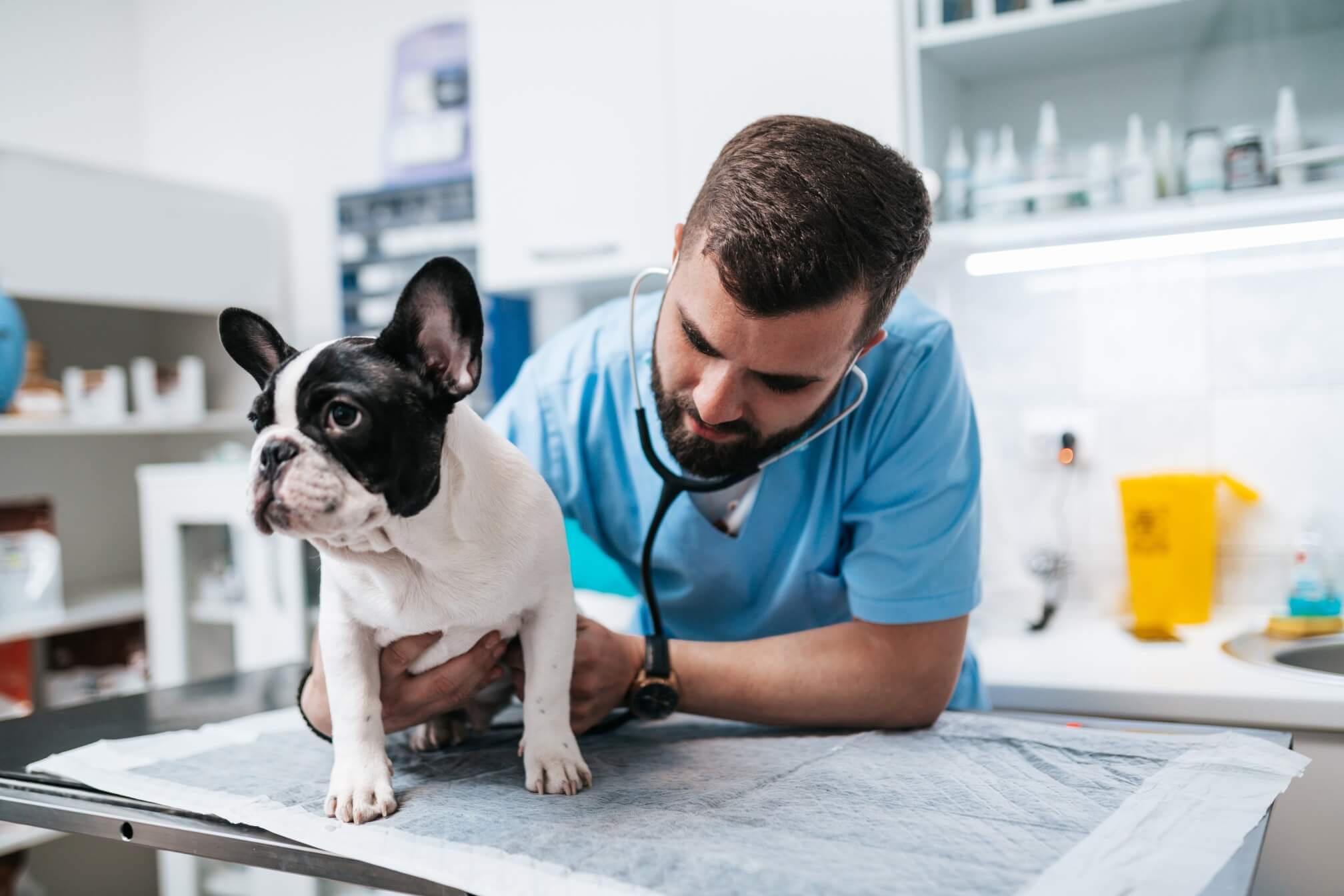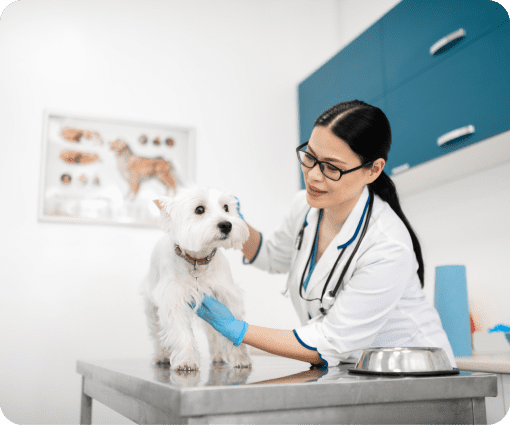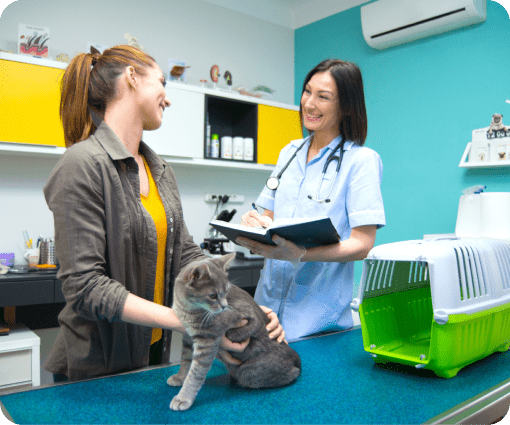

The best for your pet.
Pet wellness exams are routine veterinary examinations to ensure pets are healthy and disease-free. Similar to a human checkup, a dog care plan or cat wellness program is vital to detecting illnesses in their earliest stages so that your vet can begin treatment immediately. How often you should take your pet for a wellness exam depends on the animal's age and health status. Our vets in St. Johns, FL, are happy to recommend an appropriate wellness schedule for your pet. Our team is passionate about keeping pets in St. Johns County and surrounding areas feeling their best.
Get in Touch

Before beginning the exam, your vet asks about your pet’s lifestyle, diet, behavior, and level of physical activity. Vets are also interested in what kind of parasite prevention products owners use on their pets, such as collars, dips, and chewables. During a dog or cat exam, veterinarians evaluate the following physical and mental points:
The vet may ask you to bring in a sample of the pet’s feces to check for roundworm or tapeworm infestation. Dogs and cats can have these parasites but present only mild symptoms like occasional diarrhea or vomiting. Heartworm testing may be recommended if the vet considers your pet at risk for heartworm infection. Depending on the results of your pet’s examination, the doctor might order blood tests to determine if a suspected infection or disease exists. Veterinary blood tests detect diabetes, thyroid disease, autoimmune disorders, and other chronic diseases affecting dogs and cats.
Hit the Get In Touch With Us button below and fill out the form so we can properly connect you with a team member who can help. Prefer speaking with a human to filling out a form? Call our corporate office at the phone number listed below.